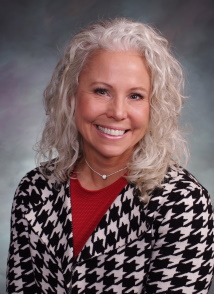Lawmakers Seek to Address Challenges Facing Nursing Home Industry
Facilities struggle to fill staff positions, provide patient access
- Published In: Politics
- Last Updated: Sep 23, 2023

Eric Boley, executive director of Leading Age Wyoming, testified at the Joint Labor, Health and Social Services Committee meeting on Sept. 21. (Courtesy photo via Wyoming Legislature YouTube channel)
By Shen Wu Tan
Special to the Wyoming Truth
It’s no secret the nursing home industry is struggling, as it navigates inadequate staffing levels and lack of access to beds.
But state lawmakers are trying to tackle those challenges with their recent approval to advance new legislation.
The Joint Labor, Health and Social Services Committee this month sponsored two bills for the next legislative session: one would authorize the issuance of temporary licenses for nursing home administrators; another would repeal bed expansion limitations for nursing care facilities and hospitals.
The bill, 24LSO-0149 working draft six, allows the board of nursing home administrators to give a temporary license to an applicant who has provided information required for licensure and is awaiting results of a criminal history record background check; an applicant pending experience completion and examination requirements set by the board; and an applicant whose training or experience in the field the board deems as qualified to serve at a nursing home without a licensed administrator.
Eric Boley, executive director of Leading Age Wyoming, an association of 29 nonprofit long-term care and assisted living providers, told the committee Thursday that there were times this summer when providers needed to issue temporary licenses, but were unable to do so.

“There’s a tremendous amount of turnover right now in long-term care,” Boley said. “We’ve got folks in the administrator training program and are doing other things. We’re also seeing delays in the background checks. So this is just a great, easy fix for a situation we’re finding ourselves in.”
Boley added that if a nursing home can’t fill an administrator role, it could potentially lose its ability to admit patients.
The bill also states that a temporary license holder shall be held to the conduct standards imposed on a license holder. The board of nursing home administrators is responsible for creating and enforcing standards that must be met by individuals to receive a license or temporary license.
The committee voted unanimously, with Sen. Eric Barlow (R-Gillette) and Sen. Anthony Bouchard (R-Cheyenne) excused, in favor of advancing the bill to the legislative session.
‘Already fractured system’
Committee members also advanced bill 24LSO-0151 working draft four, which repeals space expansion limitation provisions for nursing care facilities and hospitals. It revokes a rule that nursing care facility beds cannot expand or build in a construction area if the average of all nursing care bed occupancy is 85% or less, a threshold established by a yearly occupancy report. A construction area was defined as 30 highway miles from any existing nursing care facility or hospital with swing beds to the area of the proposed facility, a provision that was also stricken under the bill.
The legislation voids a provision that states any nursing care facility or hospital can boost its bed capacity by 10% of its current limit or by up to 10 beds in any two-year period and a provision that states beds in adult foster care and alternative elder care homes built under authorized pilot programs cannot be considered as nursing home beds.
The bill caused some disagreements among meeting attendants about the potential effects of this repeal on nursing homes. Boley opposed the legislation, warning that it could lead to more stress on an “already fractured system.”
“You’re going to be fighting for the same employees,” he said. “So what you’re going to end up with is nursing homes that have even less occupancy, and they become less viable…. There are no employees out there to be had. So we’re going to build a bunch of brand-new facilities, and we’re going to be fighting over them.”
However, Gary Crum, treasurer for the Ivinson Memorial Hospital in Laramie, argued the bill could improve long-term care for the elderly.
“It is a different marketplace being in health care, but I do believe competition brings out the best,” Crum told committee members, noting the high quality of his mother’s former nursing home in Helena, Montana, due to several other facilities in the area. “Staffing is just a matter of…[finding] the right people to recruit, and you’re going to have to pay the people what they need to be paid.”
The committee voted 8 to 4 for the bill with two legislators excused.
“I think, as truer words have never been spoken, that we don’t have a free market in health care,” said Rep. Jeanette Ward (R-Casper), a committee member. “It seems that those currently in this field are requesting that we protect their monopolies…. We need to move toward a freer market.”
If passed by the legislature, both bills would go into effect on July 1, 2024. The next legislative session is scheduled to start in February.













